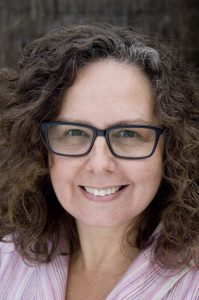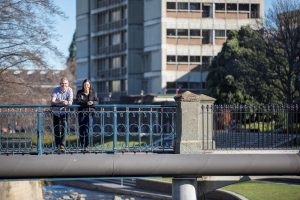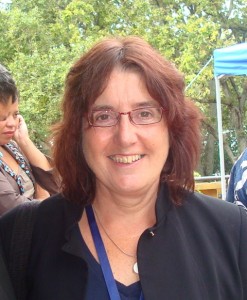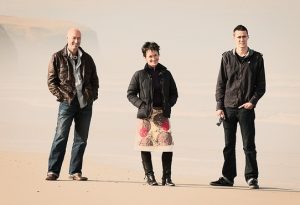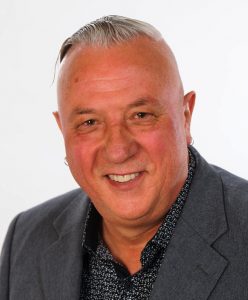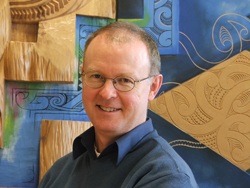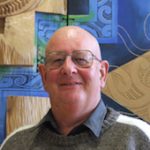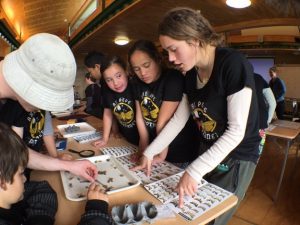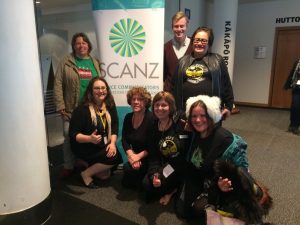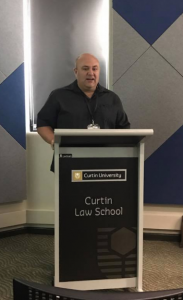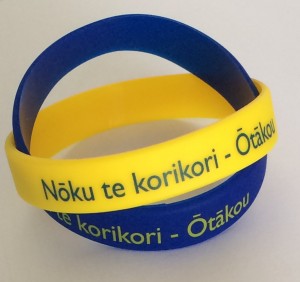Just a few days to make a submission on adoption legislation
As you know Dr Erica Newman fronts a Marsden-funded research project, Journey Home: Descendants of Māori adoptees search for their tūrangawaewae. Read more about it here. She has recently been communicating with the Ministry of Justice as they begin to review the 1955 Adoption Act, providing her expert insight regarding the effect of this Act on the identity of Māori adoptees and their descendants, especially if they have not been able to connect to their taha Māori.
Erica writes, “New Zealand’s 1955 Adoption Law has had a detrimental affect on the identity of many adoptees and their descendants. This antiquated piece of legislation is now under review and this is our chance to have a say about what we think this new Act should look like, to a focus on the child rather than the adoptive and/or birth parents.
“For instance, this could be the repeal of the current Act altogether with the intention that a system be developed whereby a child’s identity is nurtured through continued connections with whānau and their history and culture, to allow the child to truly understand who they are through the knowledge of where they are from and where they belong. Or, alternatively, significant changes could be made to the current Act such as not renaming the child when adopted, not having a veto on records, a requirement to maintain whānau connections, and whāngai becoming legally recognised (under the recognition of the child’s hapū and iwi).
“If you have experienced the legal adoption system (personally or whānau members) this is an opportunity to have a say. The more narratives the Ministry of Justice has, the more informed they will be in making change.”
Below are links for more details, please note that submissions need to be in by 31 August 2021.
https://www.justice.govt.nz/justice-sector-policy/key-initiatives/adoption-law-reform/
Dr Kalavite features on two international panels
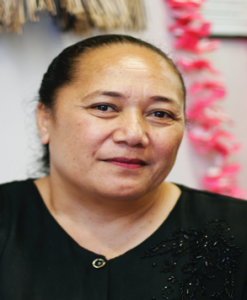 Recently Dr Telesia Kalavite was invited to participate in two online international panel discussions on the 4th, and 5th of August,
Recently Dr Telesia Kalavite was invited to participate in two online international panel discussions on the 4th, and 5th of August,
She was first invited by Fola-he Ngalu Online Media Network, a Free Weslyan Church of Tonga (Siasi Uesiliana Tau‘atāina ‘o Tonga) online platform, to discuss the topic: “The advice for parents of internet generations to help them understand what it means for their children to be proud of their Tongan identity within and outside of Tonga”. (“Ko e fale‘i, ke tokoni ki he mātu‘a ‘o e to‘utangata Tonga ko eni ‘o e Ope pē ‘Initaneti, kenau ongo‘i ‘oku mahu‘inga kenau ke i pōlepole pē ‘i honau Tonga, ‘o tatau pē ‘i Tonga pea mo muli, (‘I loto-Tonga mo tu‘a-Tonga)”.
Her focus in this panel was on her perspective as a Tongan mother and educator on what it means for this internet generation to be rooted in their Tongan culture. “Pe koehā ‘ene vakai ki he mahu‘inga ‘a hotau ‘ulungaanga faka-Tonga ‘i Tonga (loto-Tonga), ‘i he kuonga pē to‘utangata ko eni ‘o e ‘Initaneti/Vahaope” This panel was mostly in the Tongan language and can be found on the Network’s website, on Youtube, and Facebook.
Telesia was also invited by THE (Times Higher Education) Live ANZ 2021 International Conference, to be one of the panelists on the topic: “Indigenous Knowledge and the Western academy: Reflections from the field”.
Her focus in this panel was on her research, knowledge and experience on Pacific success in New Zealand Higher Education. Click here for the link to this panel.
Dr Kalavite is the Coordinator for Te Tumu’s Pacific Islands Studies programme. It is wonderful to see Te Tumu staff sharing their knowledge to wider audiences, and helping to meet the goals of the university’s Pacific Strategic Framework.
Te Tumu input into international cancer research
Regular readers of this blog will know of Karyn Paringatai’s research work. Not only is she an award-winning teacher, an advanced te reo Māori practitioner, and kapa haka aficionado, but she is also undertaking Marsden-funded research on Māori and gastric cancer in collaboration with Professor Parry Guilford of the university’s Centre for Translation Cancer Research. What follows is an update of this research, and some media links for those wanting more information.
Hereditary diffuse gastric cancer (HDGC): updated clinical practice guidelines
Māori are three times more likely to develop stomach cancer than people of European descent. Māori are one of the few populations worldwide where diffuse-type gastric cancer is more common than intestinal-type stomach cancer. Diffuse gastric cancer is an aggresive type of cancer that grows rapidly in the cells of the stomach wall – it does not form a mass or a tumour. These cancer cells spread widely and quickly and it makes it difficult to diagnose. The reasons for this high occurrence of diffuse stomach cancer are unclear but a relatively high frequency of the inherited CDH1 variants in the Māori population is one important reason. When working properly the CDH1 gene controls the growth of cells. But because it has mutated it allows cells to grow uncontrollably – including cancer cells. This genetic mutation is particularly prevalent amongst Māori, but many are unaware of the risk.
When Dr Karyn Paringatai was tested for a CDH1 variant 11 years there were only 3-4 Māori whānau with mutations in this particular gene. That number has since increased to between 12-15 Māori whānau. This prompted researchers and health professionals working in this area and affected whānau and families from all around the world to gather in Wānaka in March 2019 to update the previous management guidelines for HDGC published in 2015. A number of important new and revised recommendations are made in these updated guidelines, which was recently published by Lancet Oncology. However, most pertinent to Māori was that the whānau of any Māori person who has been diagnosed with diffuse stomach cancer be encouraged to have a genetic test, regardless of any other family history. Previously, the guidelines were largely based around the number of cases of this cancer in a family. 11 years ago Karyn had to fight to be tested and prove that she was at risk of HDGC, which was tough to do with her scant knowledge of her whānau’s medical history. That is no longer the case.
Professor Parry Guilford (Te Aho Matatu, Centre for Translation Cancer Research, University of Otago), the lead author of the article, states, “It is very uncommon in international guidelines to single out sub populations, so this is quite a significant move that we hope will reduce their risk as well as helping to reduce inequities in health for Māori.” Karyn, a co-author of these guidelines, is actively encouraging Māori to be tested and to make contact with her for any advice on how to do so. It is important to do so – for the future of our whakapapa.
This research is linked to Karyn’s Marsden funded project E kore au e ngaro – The enduring legacy of whakapapa.
Click here for a link to the updated guidelines in Lancet Oncology
Click on the links in the titles below to access media reports.
| Three, Newshub Live at 6pm, 10/08/2020, Samantha Hayes and Mike McRoberts |
| There are likely to be several hundred Maori unaware they are at high risk of an inherited form of stomach cancer, a New Zealand research team has suggested. The team from the University of Otago is hopeful updated international clinical practice guidelines they helped develop will encourage these people to be tested. |
| Radio NZ – National, Checkpoint, 10/08/2020, Lisa Owen |
| Report by Meriana Johnsen. A move to make it easier to get tested for stomach cancer is expected to save the lives of whanau Maori, and in particular, the several hundred Maori who are unaware they are at risk. New guidelines developed by the University of Otago and Kimihauora Research Clinic allow Maori to be tested for the genetic mutation CDH1 even if there is only one other family member with stomach cancer. |
| Radio NZ – National, 15:00 News, 10/08/2020 | |||||||
| A new testing criterion for identifying stomach cancer developed by Otago University and the Kimihauora Research Clinic is anticipated to save the lives of whanau Maori. Otago University’s Senior Lecturer at the School of Maori, Pacific, and Indigenous Studies Karyn Paringatai says Maori would have fewer holes to jump through.
|
|||||||
| Stomach cancer test to save whanau Maori lives | |||||||
| Radio New Zealand, Other, 10/08/2020 | |||||||
| A move to make it easier to get tested for stomach cancer is expected to save the lives of whānau Māori, and in particular, the several hundred Māori who are unaware they are at risk. New guidelines developed by the University of Otago and Kimihauora Research Clinic allow Maori to be tested for the genetic mutation, CDH1, even if there is only one other family member with stomach cancer. |
| Testing expected to save Maori from stomach cancer |
| Radio New Zealand, Other, 10/08/2020 |
| A research team hopes Maori lives will be saved with a new testing criteria for stomach cancer. The University of Otago and Kimihauora Reseach Clinic have developed the new criteria to make it easier for Maori to be tested for the genetic mutation that leads to the cancer. |
| Changing international guidelines to save Maori lives |
| Radio New Zealand, Other, 10/08/2020 |
| Researchers have managed to get a change to international clinical guidelines to ensure Maori are tested for a gene which causes stomach cancer. Otago University Professor Parry Guilford explains to Jesse why this gene is more prevalent in Maori and can be identified before a person gets cancer. |
| New clinical guidelines for stomach cancer testing aim to improve outcomes for Maori |
| Newshub, Other, 10/08/2020, Dave Goosselink |
| An Otago University team has developed new clinical guidelines for testing stomach cancer in New Zealand – especially in Maori. Maori have a higher risk of developing the disease, due to a cancer-causing gene passed down through some whakapapa. |
| Research team hopes Maori lives will be saved with new testing criteria for stomach cancer |
| New Zealand Doctor Online, Other, 10/08/2020 |
| There are likely to be several hundred Maori unaware they are at high risk of an inherited form of stomach cancer and a New Zealand research team is hopeful updated international clinical practice guidelines they helped develop will encourage these people to be tested. The University of Otago and the Kimihauora Health and Research Clinic’s (Mt Maunganui) work in understanding the role of variants (mutations) in the CDH1 gene in familial stomach cancer and the subsequent development of a genetic test, has dramatically reduced the number of deaths from this form of inherited cancer. |
| A research team hopes Maori lives will be saved by new testing criteria for stomach cancer |
| NZCity, Other, 11/08/2020 |
| Otago University Professor Parry Guilford was part of the research team which in 1997, discovered a gene mutation that makes people more likely to get stomach cancer. He’s now helped develop a new set of testing guidelines for it. |
| Research team hopes Maori lives will be saved with new testing criteria for stomach cancer |
| University of Otago, Other, 10/08/2020, Liane Topham-Kindley |
| There are likely to be several hundred Maori unaware they are at high risk of an inherited form of stomach cancer and a New Zealand research team is hopeful updated international clinical practice guidelines they helped develop will encourage these people to be tested. The University of Otago and the Kimihauora Health and Research Clinic’s (Mt Maunganui) work in understanding the role of variants (mutations) in the I gene in familial stomach cancer and the subsequent development of a genetic test, has dramatically reduced the number of deaths from this form of inherited cancer. |
| Newstalk ZB (Auckland), 10:00 News, 11/08/2020 |
| Otago University Prof Parry Guilford has helped develop new testing guidelines for his 1997 research, with the hope that it will make it easier for Māori to get tests to find out if they have stomach cancer-causing genes. |
| Newstalk ZB (Auckland), 10:00 News, 11/08/2020 |
| Otago University Prof Parry Guilford has helped develop new testing guidelines for his 1997 research, with the hope that it will make it easier for Māori to get tests to find out if they have stomach cancer-causing genes. |
3 Summer Scholarships for Māori students
The Te Hau Kāinga team are looking for three Māori students (second year or higher in 2019) for some amazing research-based work over the 2019-2020 summer break. There are two main options. One is to develop a project in your home area to look at how the Second World War affected the whānau and communities there. The output can be a written report, a mōteatea, a video (or something else) that can be shared with your whānau. The other is to undertake archival research within an archive, such as the Hocken Collections, or Ngā Taonga Sound and Vision. If you are curious, or want to discuss an idea, or find out more, contact the project leaders. Click here for more information, or to apply.
Website now live for Te Hau Kāinga project
 The website for the Te Hau Kāinga project went live this week. Te Hau Kāinga is a Marsden-funded research project led by Angela Wanhalla (History) and Lachy Paterson (Te Tumu) investigating the impacts of World War Two on Māori who remained in New Zealand during the conflict, either in their home communities, or working away from home. Designed by local web design company, Myth, the website is fully bilingual. It features a photo gallery, and a “stories” section, as well as a page where interested people can upload their own whānau stories and photographs. Check it out – click here. As stories get added to this site, links to these will be posted to the project’s FaceBook and Twitter pages. Feel free to follow these to find out more as the project rolls out.
The website for the Te Hau Kāinga project went live this week. Te Hau Kāinga is a Marsden-funded research project led by Angela Wanhalla (History) and Lachy Paterson (Te Tumu) investigating the impacts of World War Two on Māori who remained in New Zealand during the conflict, either in their home communities, or working away from home. Designed by local web design company, Myth, the website is fully bilingual. It features a photo gallery, and a “stories” section, as well as a page where interested people can upload their own whānau stories and photographs. Check it out – click here. As stories get added to this site, links to these will be posted to the project’s FaceBook and Twitter pages. Feel free to follow these to find out more as the project rolls out.
Te Hau Kāinga
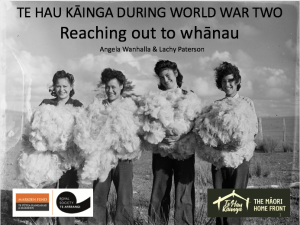 Angela Wanhalla (History) and Lachy Paterson (Te Tumu) will be giving a talk on what’s involved in their new Marsden-funded project, Te Hau Kāinga: Histories and Legacies of the Māori Home Front, 1939-1945 this evening.
Angela Wanhalla (History) and Lachy Paterson (Te Tumu) will be giving a talk on what’s involved in their new Marsden-funded project, Te Hau Kāinga: Histories and Legacies of the Māori Home Front, 1939-1945 this evening.
This will be in the Seminar Room at the Hocken Collections at 5.30pm, 11 September. Yes – this evening.
In particular, they will be explaining how they intend to reach out to whānau to let them know about the project, and to give them the opportunity to share stories of how their kaumātua or tīpuna coped during the war period. Students who wish to return home and undertake some whānau research over the summer break should come along and learn about the summer scholarships on offer. Another highlight will be a sneak preview of the project’s website that will be launched very soon.
Rangahau Roundup
Semester 2 has been busy on the research front for Te Tumu staff and postgrads.
Te Tumu is still progressing with Te Kōparapara, a book on Māori culture, history and contemporary society, which is designed as a textbook for MAOR102 as well as for a general audience. Prof Michael Reilly is the main driver of this project, and has been ably assisted by Dr Gianna Leoni. This book, with an array of essays mainly written by Te Tumu staff, is under contract with Auckland University Press and should appear sometime in 2017.
Faculty News
Associate Prof Jenny Bryant-Tokalau has been having a busy Research and Study Leave. She has given two presentations in the USA in the last semester: ‘Food security and other risks in a time of climate change: traditional and contemporary forms of resilience’, to the Department of Anthropology, and ‘Small Island Pacific States: Dealing with Climate Change’ to the Department of Geology at Wheaton College in Massachusetts. In December she presented ‘Working in Context: The Commercial Potential of Customary Pacific Land’ at the Aotearoa New Zealand International Development Studies Network Ninth Biennial Conference ‘Pacific Currents, Global Tides’ Wellington, and ‘Dealing with disasters and social change’ to the Asia Pacific Biocultural Health ‘Big Ideas’ Workshop, in Dunedin, December.
Jenny has also had one chapter in an edited collection appear during this period: ‘Community responses to floods in Fiji: lessons learned’ In Calabrese, John (ed.) Humanitarian Assistance and Disaster Response: Rising to the Challenge. MAP Series, Middle East Institute, Washington. August (2016) issue. Click here to access it. She also has two book reviews published in New Zealand and Pacific Studies November, 2016; and Journal of the Polynesian Society 125 (1), 2016.
Jenny is planning to return to the Solomon Islands to carry out in-depth interviews on small and medium businesses on Kastom land, as well as to finalise book edits for Palgrave MacMillan Anthropology of Disaster Series: What the Pacific Islands can teach New Zealand about Climate Change.
As previous posted, Prof Paul Tapsell spoke at the Indigenous Plenary at the WAC-8 Conference in September. Paul and Associate Prof Merata Kawharu are also part of the large three-year Mauri-Whenua-Ora project within the National Science Challenge Land and Water: Toitū te Whenua, Toiora te Wai. This project is the only fully Māori-led and Māori-integrated research programmes of all NSCs nationally, and is looking at Maori land and water based innovation including: (1) micro economy development “Pa to Plate”, (2) Shared iwi innovation for Taitokerau as a model for other iwi and (3) a regional (Te Hiku) study looking at Maori land suitable use and value chains. Merata also has a forthcoming publication, “Indigenous Entrepreneurship: Cultural Coding and the Transformation of Ngāti Whātua in New Zealand” in the Journal of the Polynesian Society, 125, 4 (2016): 385-408.
Associate Prof Lachy Paterson gave a presentation entitled ‘U.S. Slave “Humor” in New Zealand Newspapers’ at the 109th Annual Meeting of the Pacific Coast Branch of the American Historical Association at Waikoloa, Hawai’i. He is currently writing up this paper, which looked at how imported racist discourses permeated New Zealand’s English-language newspapers. Lachy returned to his ongoing obsession with Māori-language newspapers, with “The New Zealand Government’s Niupepa and their Demise” published in the New Zealand Journal of History, 50, 2 (2016): 44-67.
Together with Associate Prof Angela Wanhalla (Dept of History and Art History), he has also sent off their manuscript “He Reo Wahine: Māori Women’s Voices from the Nineteenth Century” to Auckland University Press, and it should appear sometime in 2017.
Over summer Prof Michael Reilly hopes to write a paper concerning the research relationship between William Wyatt Gill of the London Missionary Society, and Mamae of Ngāti Vara, a church minister, on Mangaia during the 19th century. In the longer run, he wants to begin writing chapters for an introduction to Māori tribal history, drawing from the draft text used as a ‘course reader’ in MAOR 207 Ngā Kōrero Nehe – Tribal Histories. Michael is passionate about this project but acknowledges that it may take several years to finish. He has also completed the final editorial corrections for a paper to be published this December, “Narrative Features and Cultural Motifs in a Cautionary Tradition from Mangaia (Cook Islands)”, in the Journal of the Polynesian Society 125, 4 (2016): 357-384.
Dr Jim Williams has a forthcoming article in the Journal of the Polynesian Society, entitled “Seafood Gardens”. Jim has a busy summer planned, fininishing off an essay for Ethnohistory, entitled “Layers of History” explaining how certain activities are repeated at powerful places, giving rise to notions of circularity of time, but layered, like whakapapa; he will also be giving a presentation in January at the American Historical Association conference in Denver. One of Jim’s students, Katrina Bryant, has just completed her Master of Physiotherapy.
In October newly graduated Dr Gianna Leoni gained a new position based in Te Tumu, that of a Ngā Pae o te Māramatanga postdoctoral fellow, with the research project “Te Ōhanga o te Pīpīwharauroa – Expressing our Economic Aspirations”. Click here for more details.
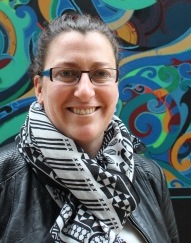 In June, Megan Pōtiki presented on her doctoral research on language loss at Ōtākou, at He Rau Tumu Kōrero IX at Te Rau Aroha Marae in Bluff. This event was run by Te Pouhere Kōrero, the national Māori historians organisation. Megan has also published two journal articles, “The Otago Peninsula: A unique identity” in Shima, 10, 1 (2016): 67-84 [Potiki-Shima-v10n1-3]; and ‘Te Haka Nā Ngā Herehere’ in Te Pouhere Kōrero 8 (2016): 6 –25, and is currently working on another article, “Māori song composition and reclamation of traditional tribal borders” based on a mōteatea she composed for the Te Tumu Kapa Haka group.
In June, Megan Pōtiki presented on her doctoral research on language loss at Ōtākou, at He Rau Tumu Kōrero IX at Te Rau Aroha Marae in Bluff. This event was run by Te Pouhere Kōrero, the national Māori historians organisation. Megan has also published two journal articles, “The Otago Peninsula: A unique identity” in Shima, 10, 1 (2016): 67-84 [Potiki-Shima-v10n1-3]; and ‘Te Haka Nā Ngā Herehere’ in Te Pouhere Kōrero 8 (2016): 6 –25, and is currently working on another article, “Māori song composition and reclamation of traditional tribal borders” based on a mōteatea she composed for the Te Tumu Kapa Haka group.
As part of Māori language week this year Tangiwai Rewi was asked to give a Library research floor talk on Wednesday 13 July on the Ngāruawāhia Turangawaewae regatta, which comes out of her doctoral research and an article last year in the Journal of the Polynesian Society. A display themed around the article was shown in the Hocken Collections for seven weeks as part of Māori language Week. Click here for more details and pictures.
Tangiwai has participated in the Ahi Pepe Resource launch 27 October and Wānanga 26-28 October. She was a collaborator in this project which created an immersion te reo Māori Moths resource depicting the 600+ species endemic to the South Island. Twelve schools were invited to the Wānanga, to participate, learn how to trap, kill and present moths for identification and preservation. Also launched that night were the bilingual and total immersion resource covering the four areas of the South Island.
Tangiwai also attended the SCANZ (Science Communicators Association NZ) conference on 14 November as part of the panel who discussed the resource and preservation of moths.
Tangiwai went north to attend the Te Awamārahi poukai on 24 November. (Poukai are ceremonial gatherings held on Kīngitanga marae.) This was an opportunity to take the photo display back to her marae especially as some of people featured in the photos come from that marae. The photo boards were put on display along with other harakeke resources found along the riverbanks. Needless to say, Tangiwai also vigorously promoted Te Tumu and the University of Otago to all the people who came to view the display.
Postgraduate News
Congratulations to Matangi Schaaf who graduates in December with a PhD; and also to Nikki Walden (Taranaki, Te Āti Awa) and Nurul Sultan with Master of Indigenous Studies degrees. Click here for more details.
Two of our PhD students are submitting in December: John Birnie and Taomi Qiliho-Tapu, and Tāwini White (Ngāi Tahu, Te Rarawa) is making the final amendments to her MA thesis. Rieko Hayakawa‘s PhD thesis ‘Possibility of Telecommunication Universal Service in the Pacific Islands; Case studies of Vanuatu, PEACESAT and USPNet’ has just passed examination. We look forward to these students graduating in the near future.
We have a new PhD student who has just started, Raaniera Te Whata (Ngāpuhi, Ngāti Porou, te Whānau a Apanui), researching communities-based Māori land development in the Bay of Islands. Raaniera comes into doctoral studies after completing an LLB in Auckland and a Master of Indigenous Studies in Te Tumu.
In August Erica Newman who is undertaking PhD research on Fijian Orphanages (1874-1970) presented at the Anthropology and Archaeology Postgraduate Symposium held here in Dunedin.
Matiu Payne (Ngāi Tahu, Ngāti Mutunga), who is researching the impact of government agencies on tikanga whāngai for his doctoral studies, has just been to the Australia New Zealand Law and History Society conference at Curtin University in Perth presenting on his PhD research.
Kelli Te Maihāroa (Waitaha) who is researching Māori peace traditions and their relevance to whānau today, has co-edited an edited collection: H. Devere, K. Te Maihāroa, & J.P. Synott (eds.) Peacebuilding and the Rights of Indigenous Peoples: Experiences and Strategies for the 21st Century, (Springer: Cham, Switzerland, 2016), which includes two co-written and one sole-authored articles by Kelli. She also has an article forthcoming, “Whanaungatanga: Relationships in a One Day Te Reo Māori School of Excellence” in Theobald, M. (Ed.) Friendships in Multilingual Settings (Sociological Studies of Children and Youth, Vol 21 (2016)). Emerald. Kelli, who is a lecturer in the College of Education, also presented at the Teacher Education Forum of Aotearoa New Zealand, in June/July in Dunedin, and at International Indigenous Research Conference in November in Auckland.
Waitangi Evidence by Associate Professor Merata Kawharu
People sometimes wonder what “value” academic work may have, particularly with regard to Humanities research. We are lucky to have Associate Professor Merata Kawharu of the University of Otago’s Research and Enterprise Office as an adjunct Research Professor in Te Tumu. Merata’s achievements that benefit Māori are many. Her latest work has been working on behalf of her own people, Ngāti Rahiri and Ngāti Kawa of the Bay of Islands, preparing evidence on early Māori-Pākehā interactions, with particular relevance to land, and presenting it from a cultural and hapū perspective. As she states “This kōrero today serves not to repeat what historians have already covered. Instead, I take a different perspective, centralising arguments from a cultural values and community-centric orientation so that the extent of significant loss can start to be more fully appreciated.” Click here to read Merata’s Summary Brief of Evidence.
ZePA research behind Māori language initiative at university
“Nōku te korikori” is a new initiative to help promote and normalise te reo Māori on campus, based on the ZePA model.
Developed by researchers Professor Poia Rewi, Dean of Te Tumu, and Professor Rāwinia Higgins (former Te Tumu staff member and now Head of School of Māori Studies at Victoria University), ZePA stands for Zero->Passive->Active, in which individuals might “right-shift” to a more active use of te reo Māori. The principles behind this model are explored in the book, The Value of the Māori Language: Ngā Hua o te Reo Māori.
“Nōku te korikori”, spear-headed by Tangiwai Rewi, the coordinator of Te Tumu’s Māori Studies programme, encourages learners and speakers of te reo Māori to don distinctive wristbands so that other learners and speakers can easily identify people who are receptive to a kōrero i roto i te reo rangatira. For full details check out this Otago Bulletin article.

